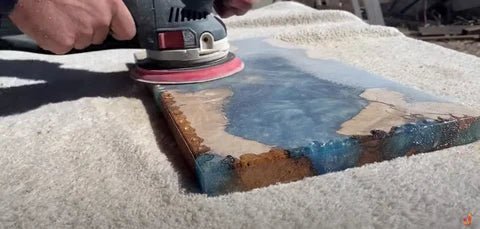Do You Need a Respirator for Resin?
Yes, if you’re working with resin (especially epoxy or polyurethane), you absolutely need a respirator. Resin fumes release volatile organic compounds (VOCs) that can cause serious short- and long-term health issues, including headaches, nausea, and lung damage. For proper protection, use a half-face or full-face respirator with organic vapor cartridges, such as the T-61 half-face respirator or the FFR-100 full-face respirator.
What Are Resin Fumes and Why Are They Dangerous?
Resins, including epoxy and polyurethane types, release toxic vapors during the curing process. These vapors contain VOCs (Volatile Organic Compounds), which can irritate the eyes, nose, throat, and lungs — even in well-ventilated areas. Exposure without proper respiratory protection may cause:
- Headaches
- Breathing issues
- Long-term respiratory conditions
- Skin sensitization
These dangers are amplified in enclosed spaces like garages, studios, or workshops — especially during casting, coating, or pouring.
What Kind of Respirator Do You Need for Resin?
When handling resin, your typical dust mask or surgical mask won’t cut it. You need a respirator that blocks both organic vapors and particulates. Here are the top options:
- Half-Face Respirators (e.g., T-61): Lightweight and comfortable for long sessions, ideal when paired with safety goggles.
- Full-Face Respirators (e.g., FFR-100): Offers both lung and eye protection from vapors, splashes, and fine particles.
Make sure your filters are A2/P2 or A2/P3, meaning they protect against organic vapors and 95–100% of particulates.
Which Respirator Filter Works for Resin?
Choose filters labeled for:
- A2 – Organic Vapor (critical for resin fumes)
- P3– Filters fine dust or particles created when sanding or buffing resin after curing
Recommended combo:
➡️ ProGuard OV/P95 Filters – Compatible with the UltraSeal, FFR-100, and T-61 models.
What Other Protective Gear Should You Use?
Respirators are the first step, but resin work also calls for:
- Nitrile gloves – To prevent skin absorption
- Eye protection or full-face respirator
- Protective apron or lab coat
- Ventilation or exhaust fan
Bonus Tip: Even "low odor" resins still emit VOCs. Don’t skip PPE just because it smells mild.
Common Questions About Resin and Respirators
Do I need a respirator for UV resin?
Yes. While UV resin uses less volume, it still emits VOCs during curing especially when used frequently or in small rooms.
Can I use an N95 mask for resin?
No. N95 masks only filter particulates, not chemical vapors. You need a cartridge-based respirator with organic vapor filters.
Can resin fumes make you sick?
Yes. Symptoms may include headaches, dizziness, nausea, respiratory irritation, and long-term sensitivity with repeated exposure.
Final Thoughts: Don’t Risk It — Protect Yourself
Resin crafting is rewarding, but without the right protection, it can be dangerous. Whether you're an artist, DIYer, or builder, investing in a proper respirator now will protect your health long-term.
➡️ Shop our top picks for resin safety here:
👉 Explore the Parcil Safety Resin Collection
Sources:




















Leave a comment
All comments are moderated before being published.
This site is protected by hCaptcha and the hCaptcha Privacy Policy and Terms of Service apply.